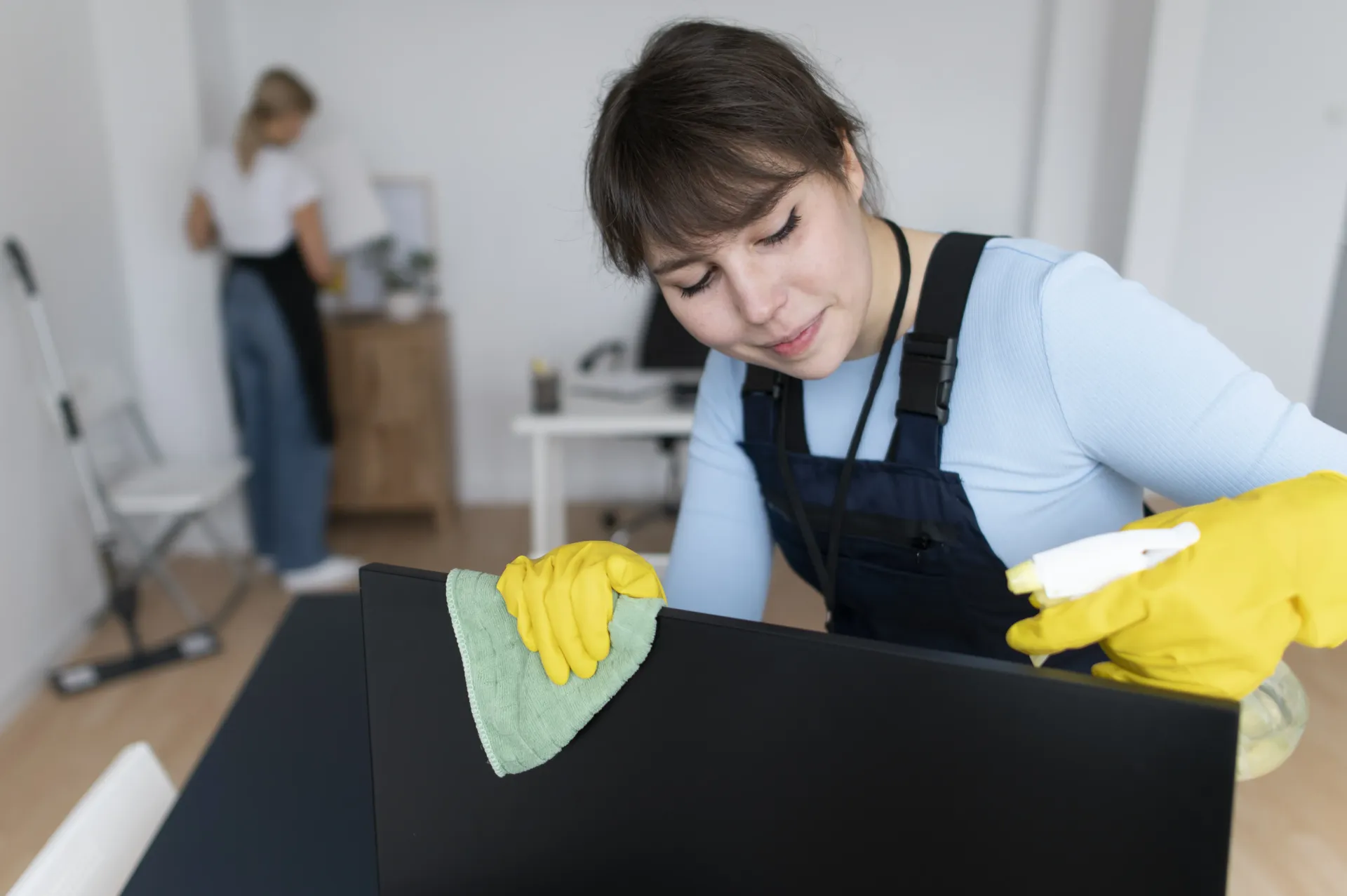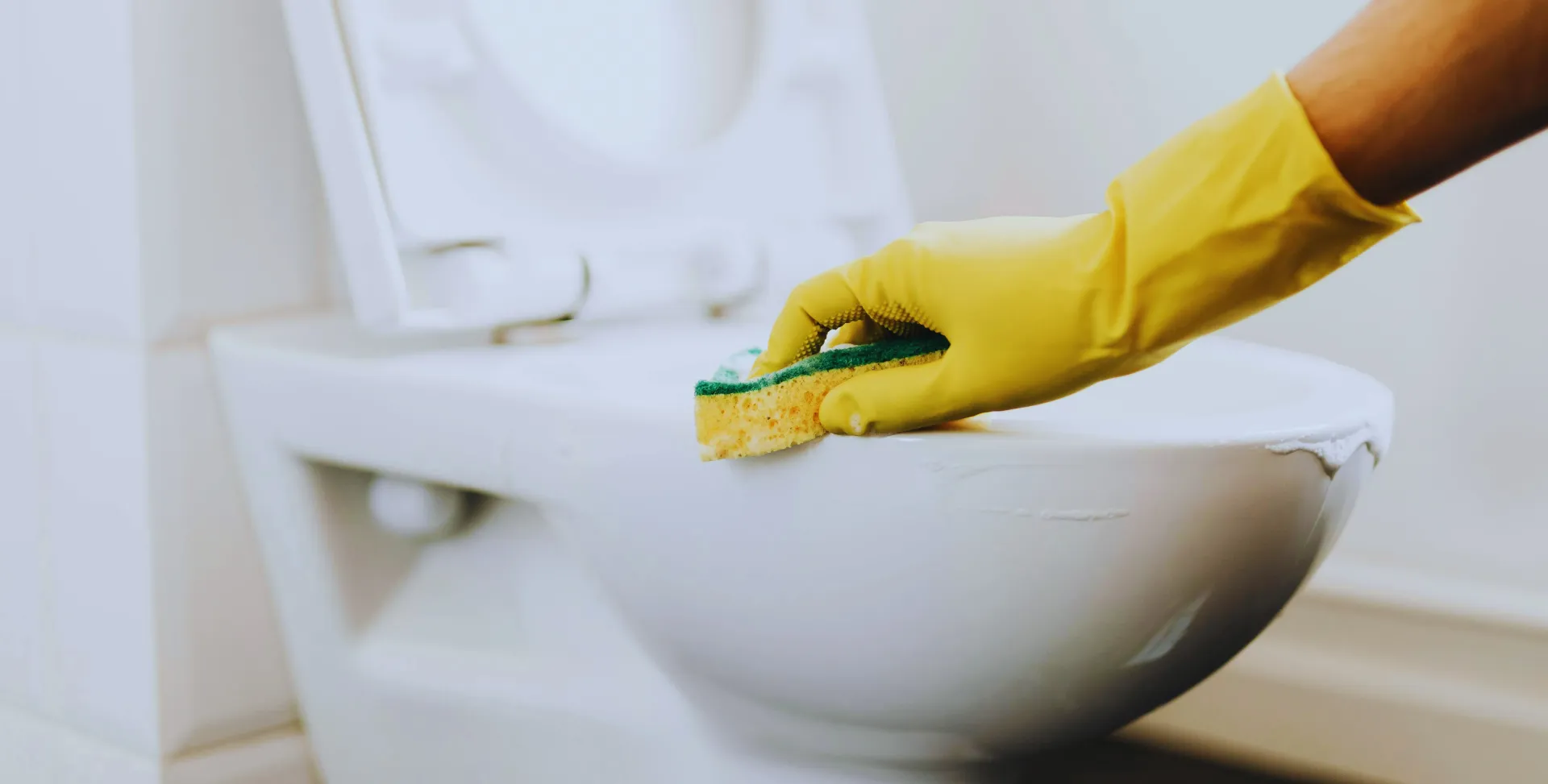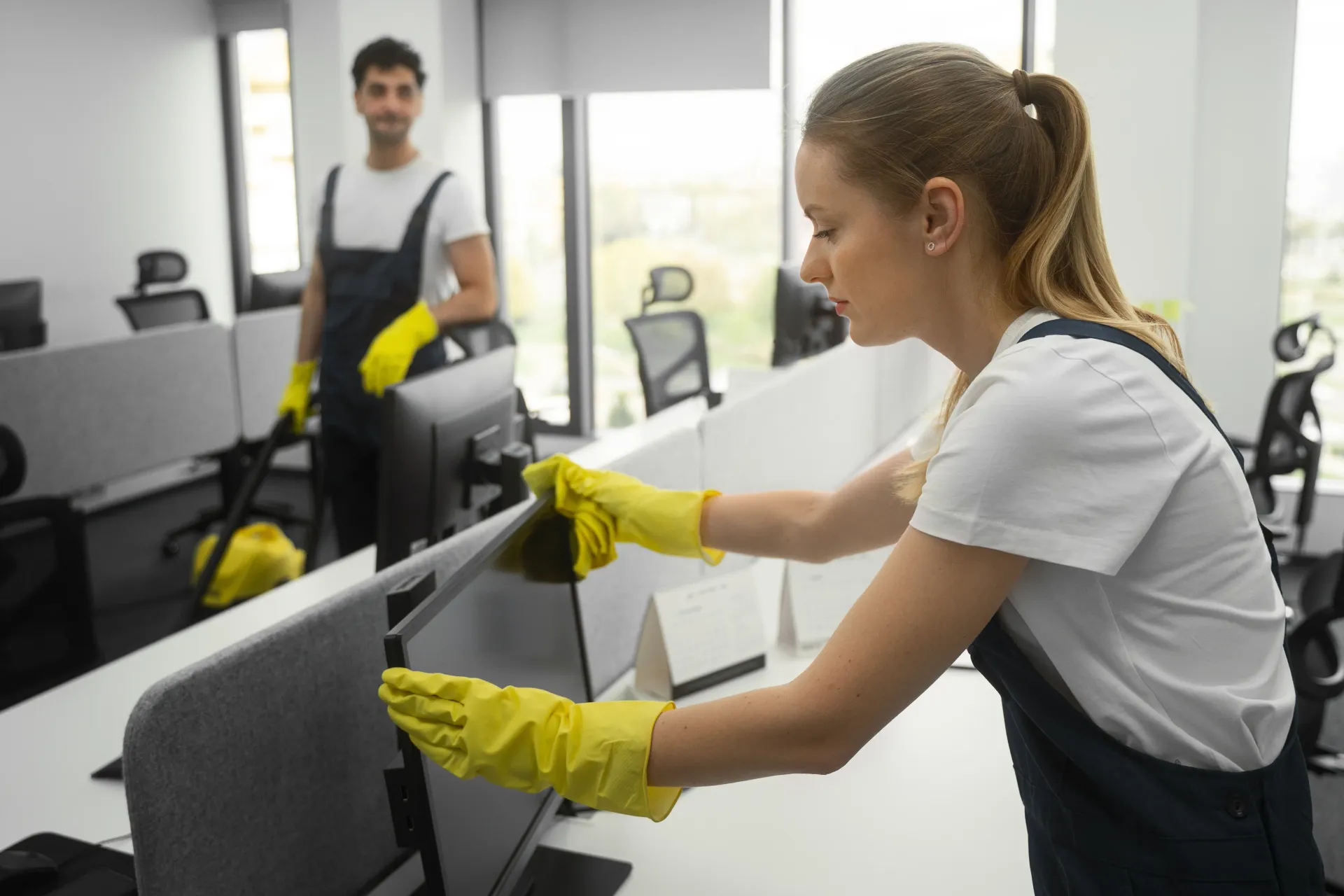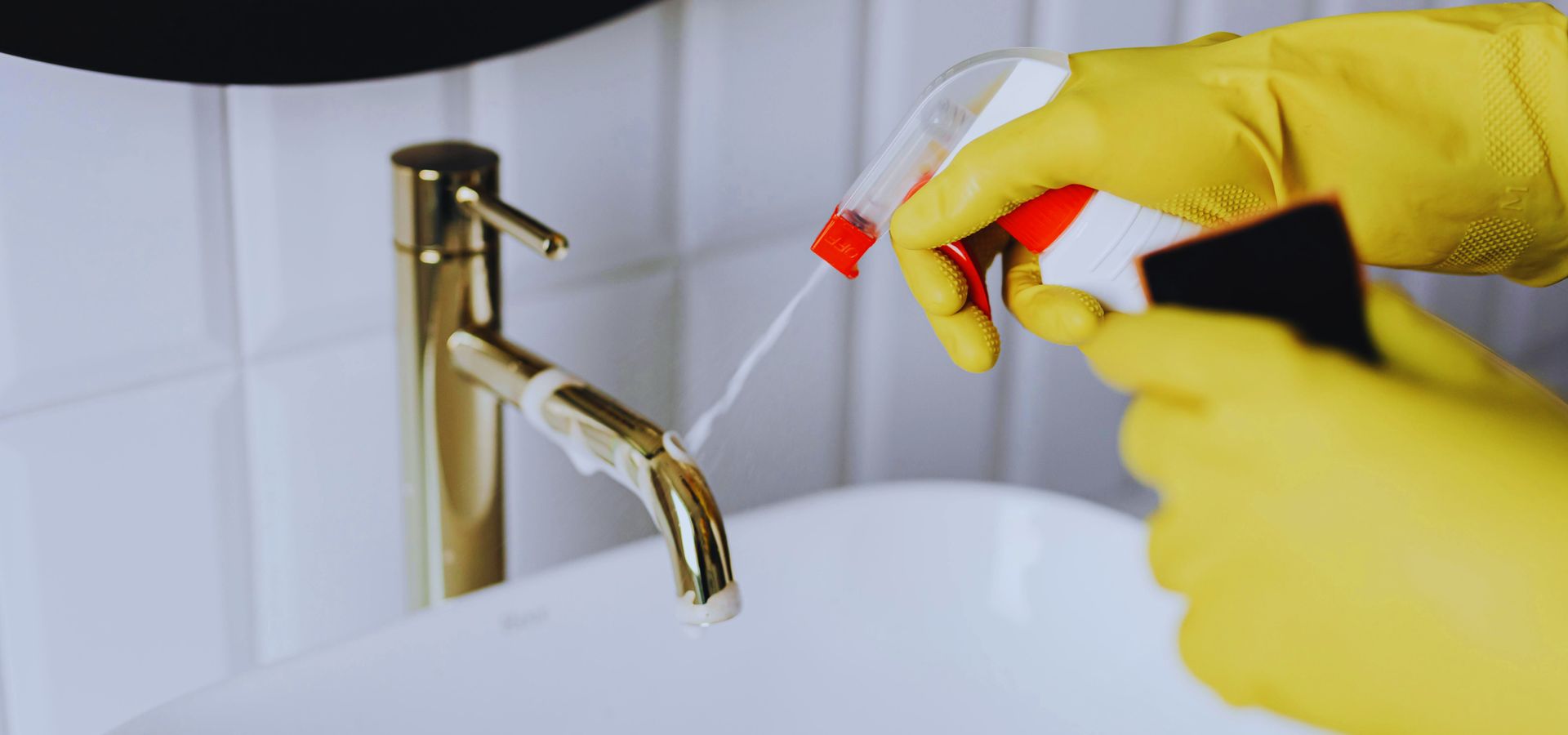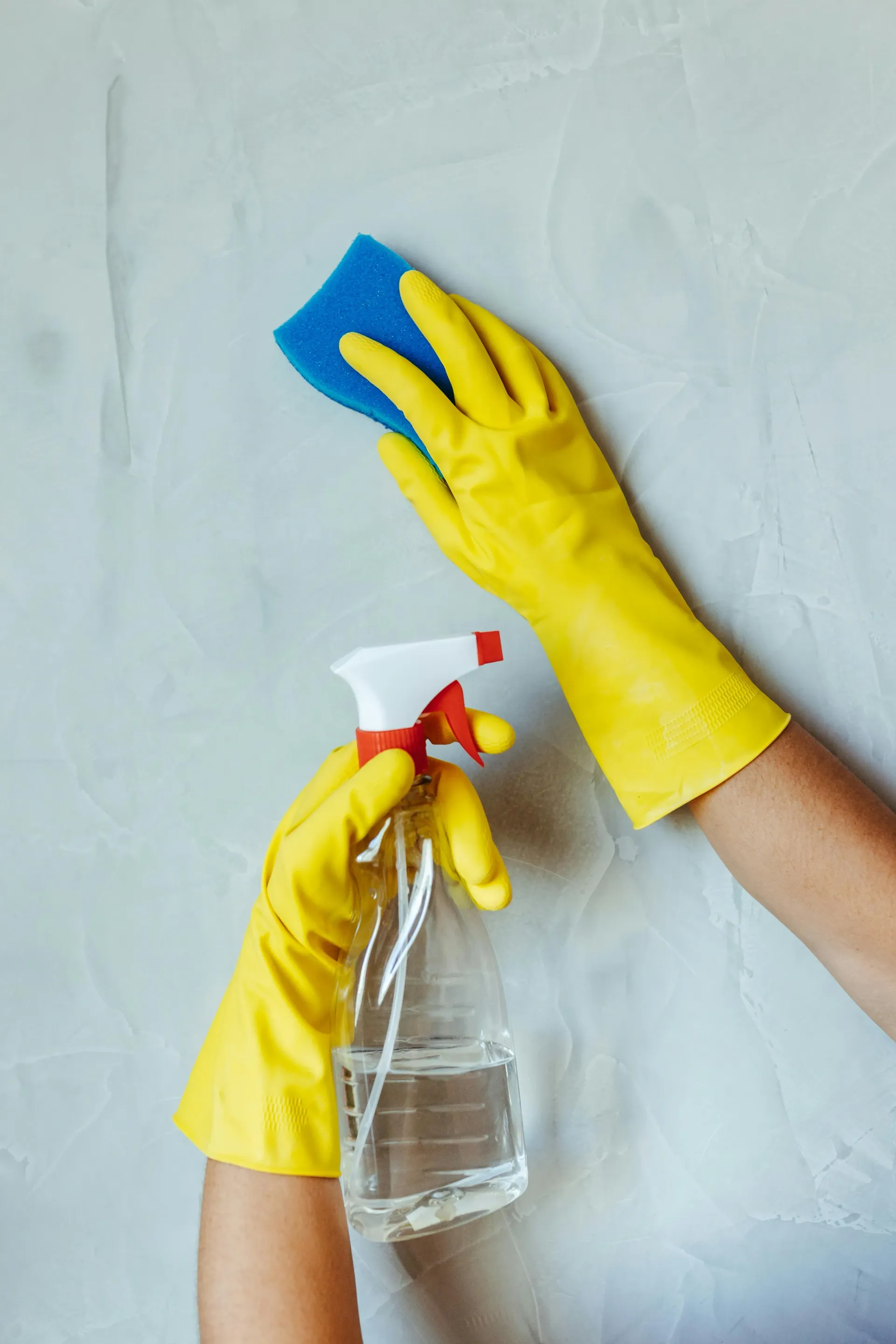From Boosted Focus to Client Confidence, a Clean Office Speaks Volumes
Step into any successful company, and you’ll likely notice something consistent across the board: a pristine, organized, and sparkling clean office. This isn’t just a coincidence. A clean office space speaks volumes—not just aesthetically but psychologically, professionally, and financially. From energizing your employees to impressing potential clients, cleanliness is a silent but powerful partner in your business growth.
What if the next big client deal or productivity surge could trace its roots back to a clean desk or fresh-smelling lobby? Sounds dramatic—but it’s backed by science and behavior studies. A tidy workspace isn’t only about avoiding clutter. It’s about setting a tone of professionalism, respect, and discipline, both internally and externally.
Let’s unravel how cleanliness enhances focus, builds trust, and transforms your business from the inside out.
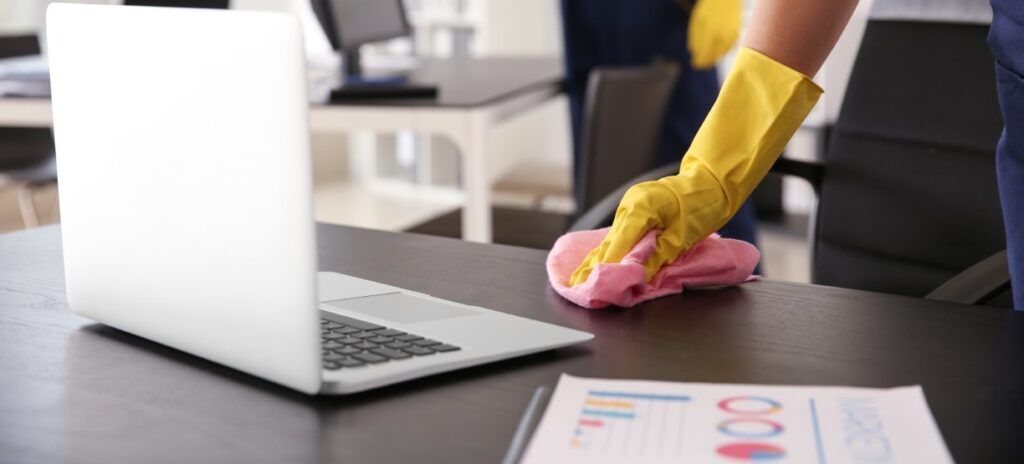
The Psychological Power of Cleanliness
Ever walked into a messy room and instantly felt uneasy? That’s because clutter creates cognitive overload. Your brain is already working overtime with meetings, deadlines, and emails—so a chaotic environment only adds to the mental fog. A clean office, on the other hand, soothes the mind. It removes visual noise, making it easier to think clearly and work efficiently.
Clean surroundings also trigger a psychological cue that “order” exists. Employees feel more in control, which increases job satisfaction. Moreover, clients subconsciously equate cleanliness with capability. A clean environment tells them: “We’ve got it together.”
Clean Desks, Clear Minds
A tidy desk equals a tidy mind. Period. Employees working in neat spaces tend to complete tasks faster, make fewer errors, and feel less stressed. Why? Because clutter is a known distraction.
Organized desks improve focus, limit procrastination, and promote a sense of control. Additionally, employees are more likely to take pride in their workspace when it’s clean—creating a ripple effect of accountability and self-management.
A Clean Office Enhances Productivity
Clean offices lead to fewer distractions. When surfaces are dust-free, supplies are organized, and communal areas are functional, employees can focus on what truly matters—doing their best work.
According to a Harvard study, clean environments can boost productivity by as much as 15%. That’s not trivial. Imagine what your team could accomplish with 15% more output per day, all because someone vacuumed the carpet and sanitized the desks.
Office Hygiene and Employee Wellness
From reduced sick days to improved morale, the health benefits of a clean workspace are immense. Bacteria, allergens, and viruses spread fast in shared environments. Regular professional cleaning cuts this risk significantly.
This is where using a trusted Cleaning Service makes a world of difference. They tackle hidden grime, high-touch areas, and air quality—all of which contribute to a healthier, happier staff.
First Impressions: What Clients Really See
Clients judge within seconds. A stained carpet, cluttered reception, or dusty blinds could easily tip their opinion. When your office shines, so does your reputation.
First impressions aren’t just visual—they’re emotional. Clients associate cleanliness with trust, safety, and professionalism. Whether you’re hosting a sales pitch or interview, your office environment speaks before you do.
Cleanliness Reflects Brand Values
Your brand is more than your logo or website—it’s how people feel when they interact with your business. Cleanliness is a physical manifestation of your values. Do you care about the little things? Are you meticulous? Do you respect your clients' comfort?
Keeping your workplace spotless reflects high standards and attention to detail. It shows clients and employees alike that you walk the talk.
The Role of Professional Cleaning Services
Let’s be real—office cleaning isn’t a task to hand over to your staff after hours. A reputable Cleaning Service provides expertise, consistency, and equipment that in-house teams can’t match.
From deep-cleaning carpets to sanitizing keyboards, professionals ensure nothing is missed. Plus, they work around your schedule, leaving your team free to focus on their actual jobs.
Office Cleaning Frequency: How Often is Enough?
Every business has unique cleaning needs. Yet, too many companies adopt a “clean it when it’s dirty” approach—reactive rather than proactive. The truth? Waiting until surfaces are visibly soiled is already too late. Germs, dust, and odors don't wait for visible signs.
Daily cleaning is recommended for high-touch areas like doorknobs, desks, restrooms, and kitchen counters. For carpets and air vents, a weekly or monthly deep clean helps control allergens and bacteria. By creating a tailored cleaning schedule, you ensure consistency without redundancy.
A professional cleaning service can help you assess your space and develop a customized plan based on foot traffic, team size, and layout. Routine doesn’t mean robotic—it means reliable, and that’s what clients notice.
Clean Office Air Quality: More Important Than You Think
Air quality is one of the most overlooked aspects of workplace cleanliness. Dirty air filters, dusty vents, and moldy corners contribute to indoor air pollution, which can worsen allergies, cause headaches, and reduce concentration.
Studies show that poor indoor air quality can reduce cognitive function by up to 50%. Let that sink in.
To combat this, clean your HVAC systems regularly. Consider adding air purifiers and using non-toxic, green cleaning products. Not only will your staff breathe easier, but your office will literally smell success.
Break Room Cleanliness and Team Morale
The break room isn’t just for snacks—it’s a hub for bonding, brainstorming, and de-stressing. Yet, it’s often the messiest area. Crumbs, coffee spills, and overflowing trash cans create a sense of neglect.
A clean break room encourages employees to recharge in peace. It also shows that their comfort matters. If you want your team to feel respected, keep their shared spaces spotless. Happy teams don’t form in dirty kitchens.
The Science Behind Cleaner Workspaces
Behavioral science reveals that people mirror their environment. A clean space fosters discipline and positive habits, while a cluttered one breeds procrastination and stress. This is called environmental cue theory, and it’s powerful.
Clean surroundings signal that work matters here. That precision is practiced. That quality isn’t optional—it’s expected. These subliminal messages shape how your team thinks and behaves. Cleaner workspaces create cleaner thinking.
Digital Cleanliness: Decluttering the Digital Workspace
Not all clutter is physical. A disorganized digital workspace—files everywhere, a desktop full of icons, or chaotic email inboxes—can be just as overwhelming as a messy office.
Encourage team-wide digital hygiene. Schedule weekly “desktop cleanups.” Organize shared drives. Label files clearly. Use digital project management tools like Asana, Trello, or Notion to bring order to digital chaos.
After all, productivity doesn’t just live on your desk—it lives on your screen too.
Minimizing Workplace Clutter
Clutter accumulates when systems don’t exist. Consider implementing storage solutions that blend form with function. Wall-mounted shelves, labeled drawers, and document scanning can reduce the paper trail and physical mess.
Encourage a minimalist mindset. Ask employees to remove non-essential items monthly. Provide incentives for the tidiest departments. Small changes, like giving each employee a personal drawer organizer, can produce massive results.
The ROI of a Clean Workspace
Investing in cleanliness offers tangible returns. How? By reducing absenteeism, extending equipment life, increasing efficiency, and improving client retention. A sparkling office lowers the risk of illness, boosts morale, and makes hiring easier.
Even more impressive, studies from ISSA (International Sanitary Supply Association) show that cleanliness can increase employee satisfaction by up to 24%. That’s not fluff—it’s financial strategy.
Sustainable Office Cleaning Practices
Modern companies care about their carbon footprint—and so do clients. Use non-toxic, biodegradable cleaners. Switch to microfiber cloths instead of disposable wipes. Use refillable containers and reduce plastic.
Partnering with a green Cleaning Service shows eco-conscious leadership. It attracts like-minded clients and employees. Clean doesn’t have to mean wasteful.
Encouraging Employees to Stay Tidy
Getting your team on board is key. Start with a clean desk policy. Set a weekly cleanup reminder. Offer gift cards or shout-outs for “Cleanest Workstation of the Month.”
Make cleanliness part of your culture. When employees know that tidiness is not optional but expected, they’ll rise to the occasion. Foster pride, not policing.
Clean Bathrooms Mean Happy Clients and Employees
Would you trust a company with a filthy bathroom? Probably not.
Restroom cleanliness reflects how a company treats its people. Supply plenty of soap, tissues, and air fresheners. Keep mirrors gleaming and trash bins empty. Install a feedback card or QR code so employees can discreetly report issues.
Bathrooms might be behind closed doors—but they reveal a lot.
The Silent Business Asset: Janitorial Services
While they work behind the scenes, janitorial teams are frontline heroes. They know your office better than you do. Partnering with a reliable Cleaning Service means you get seasoned professionals who don’t cut corners—literally.
They catch problems before they spread. They uphold your brand when no one’s watching. They're not a cost—they’re a business asset.
Clean Office = Fewer Employee Sick Days
Germs live longer than we think—especially on keyboards, elevator buttons, and phones. A regular sanitizing schedule slashes the spread of illnesses like the flu or COVID-19.
Employees who feel safe show up more. They work harder. They stay longer. Cleaning, in this case, is your best health insurance.
How Office Cleanliness Improves Communication
An orderly space reduces stress and tension. Team members collaborate better when they’re not distracted by chaos. Clean spaces encourage open conversation, more focused meetings, and fewer misunderstandings.
A tidy space nurtures a tidy mind—and a tidy mind is more articulate, empathetic, and responsive.
Enhancing Meeting Room Appeal
Meeting rooms are high-stakes zones. Deals are closed here. Teams align here. Yet many are dusty, uninviting, and cluttered.
Keep AV equipment tidy. Wipe the table. Ensure water, tissues, and whiteboard markers are stocked. A well-prepped room makes people feel expected, respected, and valued.
Cleaning Service Checklist for Businesses
Here’s a practical list every office should follow or delegate to a Cleaning Service:
- Sanitize desks, phones, keyboards
- Vacuum floors and carpets
- Clean glass and mirrors
- Disinfect restrooms thoroughly
- Empty trash bins
- Mop and polish floors
- Dust vents, blinds, and baseboards
- Refresh breakroom and restock supplies
Print it. Post it. Use it.
How Office Cleanliness Affects Business Reviews
Believe it or not, clients and visitors mention cleanliness in reviews. A clean space signals professionalism and reliability. A dirty one? Carelessness.
Google and Yelp reviews often reflect a client’s in-person experience, and cleanliness is a silent influencer. One sparkling first impression could lead to a five-star rating and repeat business.
Psychological Impact of Clean Common Areas
Common areas are often used to reset, refresh, and socialize. If they’re messy, they become stressful instead of soothing.
Clean lounges, kitchens, and reception zones allow employees and clients to take mental breaks. These areas recharge creative energy and foster informal collaboration.
Clean Office Design Tips
Interior design matters. Go for open layouts, soft lighting, and plants. Minimalism not only looks modern but is easier to maintain. Use materials that are easy to wipe down.
Design for cleanliness. Rounded furniture, seamless floors, and wireless setups help you stay tidy without trying.
Common Cleaning Mistakes to Avoid
- Ignoring high-touch areas like elevator buttons
- Forgetting to clean behind furniture
- Using the wrong cleaning products
- Skipping air vents
- Not replacing vacuum bags or filters
Avoid these, and you’re already ahead of the curve.
Office Cleaning and Legal Compliance
Workplace hygiene isn’t just ethical—it’s often required by OSHA and other local agencies. Poor cleanliness could mean fines, lawsuits, or shutdowns.
A professional Cleaning Service ensures compliance with sanitation codes, health inspections, and safety laws. Don’t cut corners. Cut risk.
Creating a Cleaning Schedule That Works
A good cleaning schedule balances frequency with function. Divide tasks into daily, weekly, monthly, and seasonal checklists. Assign responsibility or outsource with confidence.
Post it publicly so everyone’s on the same page. A visual reminder encourages action—and accountability.
Empowering Employees Through Cleanliness
When employees are invited to co-own their environment, they rise. Give them tools, space, and support to maintain cleanliness.
Recognize their efforts. Celebrate milestones like “100 Days of Tidy.” Make cleanliness a shared value, not a chore.
FAQs
How often should an office be professionally cleaned?
It depends on your office size, staff volume, and industry. High-traffic areas may require daily attention, while less-used spaces could be cleaned weekly.
Can a clean office really impact client decisions?
Absolutely. A well-maintained space builds trust and reassures clients that you're organized, capable, and reliable.
What’s the connection between cleanliness and productivity?
Cleaner spaces reduce distractions, improve focus, and decrease sick days—leading to significantly higher output.
Is digital clutter just as harmful as physical clutter?
Yes, disorganized desktops and files create the same cognitive stress as messy desks. Clean your digital workspace regularly.
What areas are commonly overlooked in office cleaning?
Door handles, light switches, air vents, and office equipment like phones and keyboards are often missed.
Should businesses hire in-house cleaners or outsource?
Outsourcing to a
Cleaning Service ensures professional results, consistency, and access to specialized tools.
Conclusion
From boosted focus to client confidence, a clean office truly speaks volumes. It’s not just about hygiene—it’s about perception, productivity, and pride. A spotless workspace attracts and retains talent, impresses clients, and boosts morale. It’s a small investment with massive returns.
So, if you’re ready to elevate your environment and reputation, consider making professional cleaning part of your business growth strategy. Let your office be your silent ambassador—clean, clear, and confidently you.
Links:


